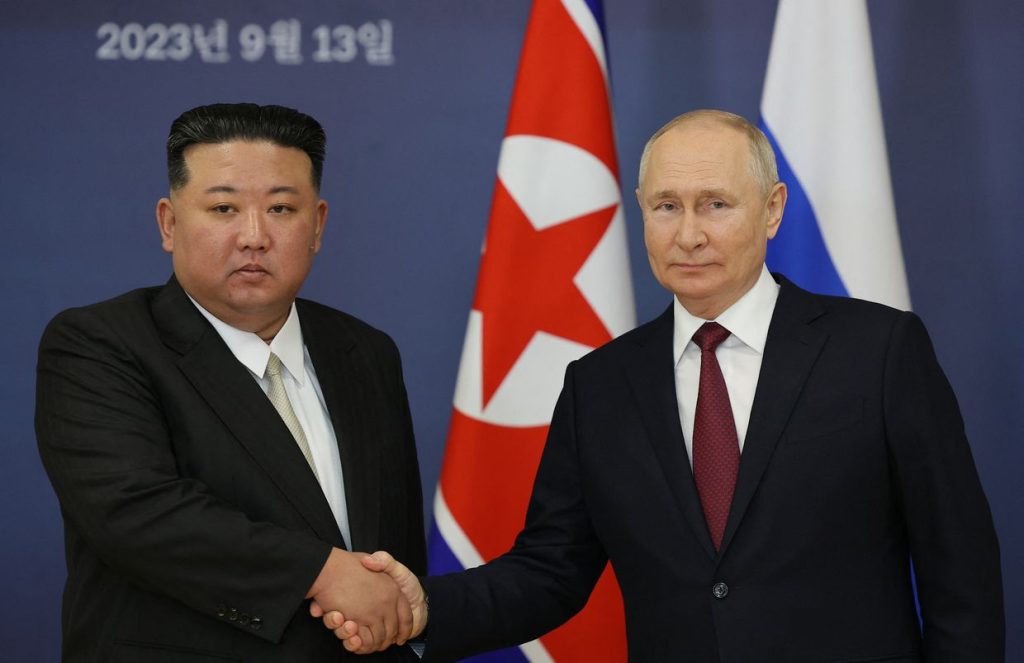South Korea’s intelligence service is investigating allegations that North Korea provided Russia with artillery shells and other weaponry manufactured in the 1970s. The National Intelligence Service (NIS) stated that it is analyzing the situation in detail and monitoring military cooperation between North Korea and Russia. Recent reports suggested that North Korean-produced artillery shells were used in Ukraine’s eastern front, a claim that has been confirmed by Ukrainian and U.S. officials. With Russia facing dwindling military stocks and production constraints due to Western sanctions, North Korea has emerged as a key arms supplier to Russia, supplying ballistic missiles and over 3 million artillery shells.
U.S. State Secretary Antony Blinken highlighted the mutual military ties between North Korea and Russia, with North Korea providing Russia with military equipment to use in Ukraine. South Korean Defense Minister Shin Won-sik noted that Pyongyang had sent thousands of ammunition containers to Russia since the two countries’ leaders met in 2023. The shipments reportedly include food and other necessities, contributing to stabilizing prices in North Korea. There are concerns that Russia is acquiring advanced missiles from North Korea that could potentially be deployed in combat situations in Ukraine. A U.N. report confirmed that Russia utilized missiles from North Korea in an attack on Kharkiv, resulting in casualties and injuries, in violation of U.N. sanctions.
Despite the relatively small number of missiles provided by North Korea to Russia compared to Russia’s overall arsenal, the growing military cooperation between the two countries is causing apprehension among Ukraine and its allies. The use of North Korean weaponry by Russia in the conflict in Ukraine has raised alarms about the implications of such alliances on regional security. South Korean media reports and intelligence assessments have shed light on the extent of military cooperation between North Korea and Russia and the potential consequences of this collaboration. The involvement of North Korean weapons in the conflict in Ukraine has spurred calls for stronger international sanctions and monitoring to prevent the illicit transfer of arms that fuel conflicts.
The nature of the military ties between North Korea and Russia points to a complex network of weapons procurement and supply, posing challenges for global efforts to curb arms proliferation and maintain peace and security. The use of outdated North Korean weaponry by Russia in the conflict in Ukraine underscores the risks associated with military cooperation between countries with dubious human rights records and aggressive foreign policies. Efforts to investigate and address the flow of arms from North Korea to Russia require international cooperation and vigilance to prevent such transfers and hold accountable those responsible for violating sanctions and fueling conflicts. The role of North Korea as a key supplier of arms to Russia raises concerns about the impact of such weapons transfers on regional stability and the global arms trade.
The alleged involvement of North Korean weaponry in conflicts in Ukraine raises questions about the role of illicit arms trafficking in perpetuating violence and destabilizing regions. The actions of North Korea and Russia in procuring and using military equipment from illicit sources highlight the challenges faced by governments and international bodies in enforcing arms control measures and preventing the spread of weapons of mass destruction. The use of North Korean missiles by Russia in attacks on Ukrainian cities underscores the need for enhanced monitoring and enforcement mechanisms to prevent further violations of international law and human rights standards. Concerted efforts to curb the flow of illicit arms and hold accountable those responsible for their transfer are essential to safeguarding global security and promoting peaceful resolutions to conflicts.


